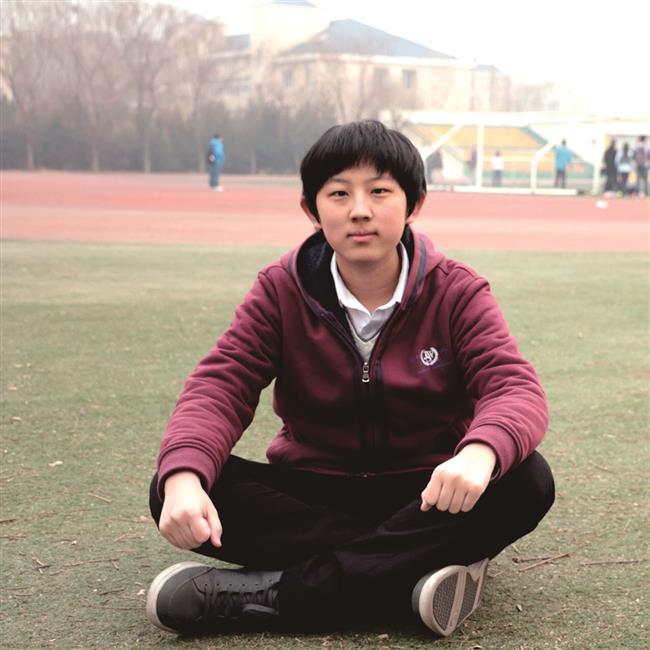University student wins with 'translating glasses'
Yan Xu, an English major, became one of the 17 winners of the first revolutionary technology innovation competition organized by Shanghai Jiao Tong University recently.
Aiming to inspire forward-looking and exploratory creative ideas that might come true within five to 10 years, the competition received more than 3,000 proposals from its students, teachers and science enthusiasts from outside the university, covering advanced manufacturing, new energy, Bio-X and other areas.
Yan’s glasses contain an eye-tracking system, which can translate English words in books and movies.
“The glasses will look just like ordinary ones,” Yan said. “But they can track your focus with the eye-tracking system. It’s much quicker and more convenient than checking it by inputting the words into digital dictionaries.
“When you stare at a word, the glasses will search the entry in the installed corpus or online dictionaries, and then show its Chinese meaning on the glasses,” she explained. “When you move your sight again, the definition disappears and you can read on.“

Yan’s glasses contain an eye-tracking system, which can translate English words in books and movies.
Yan, a sophomore student, said she found it inconvenient looking up words in dictionaries when reading English books as there were so many unknown words there.
“It is really distracting and erodes my interest in reading,” she said.
But she did not know how to solve the problem until she took an experimental class given by a professor at the university’s School of Electronic Information and Electrical Engineering. It was about eye-tracking, or eye-view monitoring systems, and she was inspired to develop the glasses.
She also did a survey among her schoolmates and found it had great market potential.
As an English major, she had to consult professors at the School of Electronic Information and Electrical Engineering by herself and read a lot of science papers to learn what she had never learned before.
“The theories and design are ready and the next step is to produce the real product,” she said.
After several rounds of assessments, judges believed that the intelligent glasses might overturn the markets of glasses and digital dictionary.
By entering the competition and emerging as one of the 17 winners, she also won two professors from the department of computer science and engineering as her exclusive tutors.
They will teach her more about the technologies she needs in later research and development and assist her in optimizing her design.

Yan Xu, an English major at Shanghai Jiao Tong University, has invented glasses that can translate English words in books and movies.
Jiao Tong’s science park will also follow up and arrange entrepreneurial mentors for her and provide support for further development of her project.
Yan hopes her success can inspire other students to break out of the box of disciplines and majors and be brave enough to learn and realize their dreams.
“Innovation and invention are not exclusive for science students,” she said. “All students should have a try if they have dreams.
“If we do not try, we will never fulfill them. Only when we try, we have the opportunity to fulfill them one day,” Yan added.















